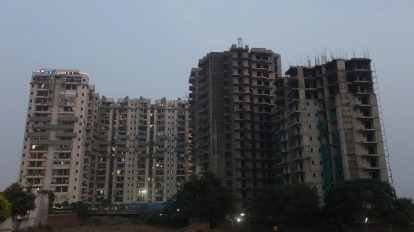Karnataka’s recent decision to increase the reservation for minorities in state housing schemes from 10% to 15% has ignited a fierce political and social debate, placing the state at the center of a national conversation on affirmative action, constitutional limits, and social justice. The move, announced by the Congress-led government and defended as a measure to uplift the houseless among minorities, has been met with strong opposition from the BJP and other critics who label it as “appeasement politics” and vow to challenge it in court.
Karnataka’s decision to increase the minority reservation in housing schemes has brought the state’s housing policies into sharp national focus. The move is not just a matter of administrative adjustment but a reflection of deeper currents in Indian politics, social justice, and urban development. As the state government pushes forward with its new quota, stakeholders from all walks of life—politicians, legal experts, homebuyers, and minority groups—are weighing in with strong opinions on both sides of the debate.
The roots of Karnataka’s housing challenges run deep. Rapid urbanization, particularly in Bengaluru and other major cities, has led to a surge in demand for affordable housing. Migrants from across the state and neighboring regions flock to urban centers in search of jobs, putting immense pressure on existing infrastructure. This influx has made it increasingly difficult for the government to keep pace with housing needs, especially for economically weaker sections and marginalized communities.
The recent increase in the minority quota from 10% to 15% is being framed by the Congress-led government as a step toward social equity. Officials argue that minorities, as defined by the state—including Muslims, Christians, Jains, and Buddhists—are disproportionately represented among the houseless. By raising the quota, the government claims it is addressing a historical imbalance and ensuring that state-constructed homes reach those who need them most.
However, the policy has not been without controversy. Opposition parties, particularly the BJP, have accused the government of pandering to vote-bank politics and undermining constitutional principles. They argue that reservations based on religion are not only unconstitutional but also risk alienating other disadvantaged groups, such as Scheduled Castes (SC), Scheduled Tribes (ST), and Other Backward Classes (OBC), who also depend heavily on government housing schemes.
Legal experts are closely watching the unfolding situation, as the new quota is almost certain to be challenged in court. Previous Supreme Court judgments have struck down religion-based reservations in education and public employment, and critics argue that housing should be no different. The government, for its part, insists that its policy is in line with central guidelines and is supported by data from the Sachar Committee and other studies highlighting the acute housing needs of minorities.


Government Raises Minority Quota in Housing Schemes
On June 19, 2025, the Karnataka cabinet resolved to enhance the reservation for minorities—including Muslims, Christians, Jains, and Buddhists—in all state-run housing schemes from 10% to 15%. Law and Parliamentary Affairs Minister HK Patil explained that the decision was based on studies, the Sachar Committee report, and instructions from the Union government, all highlighting the high number of houseless families among minorities in both urban and rural Karnataka.
Deputy Chief Minister DK Shivakumar defended the move, noting that many state-constructed homes remain vacant and that minorities have shown willingness to occupy these units. The government insists that the new quota does not affect allocations for SC, ST, and OBC communities and is intended to address surplus units and genuine need.
The debate is not merely legal or political—it is also deeply personal for the thousands of families waiting for a roof over their heads. For many, government housing schemes represent the only realistic path to homeownership. The increase in minority quota has brought hope to some, but also anxiety among others who fear that their chances of securing a home may now be diminished.
At the heart of the issue is the broader question of how to balance social justice with constitutional mandates. India’s reservation system has always been a subject of intense debate, with proponents arguing that it is necessary to correct historical injustices and opponents warning of the dangers of perpetuating identity-based politics. Karnataka’s housing policy is now the latest battleground in this ongoing national conversation.
The implementation of the new quota also raises practical challenges. Housing authorities must now ensure that allocations are made transparently and fairly, avoiding the perception or reality of favoritism. There are concerns that the process could become mired in bureaucratic delays, or worse, manipulated by vested interests seeking to exploit the system for personal or political gain.
Meanwhile, the state’s broader housing sector faces other significant hurdles. Project delays, funding shortfalls, and regulatory bottlenecks have plagued both affordable housing schemes and private real estate development. The government’s ambitious targets for new housing units have often fallen short, leaving many projects incomplete and beneficiaries in limbo.


BJP and Opposition Slam “Appeasement Politics”
The BJP has fiercely criticized the decision, calling it unconstitutional and an example of “appeasement politics.” State BJP President Vijayendra Yediyurappa and Union Minister Pralhad Joshi both argued that reservation on the basis of religion violates Supreme Court rulings and undermines opportunities for SCs, STs, and OBCs. The BJP has announced plans to raise the issue in the state assembly and protest statewide, claiming that the Congress government is using welfare as a tool for vote-bank politics. Critics also point to a recent 4% reservation for Muslims in government contracts as evidence of a broader trend toward religious quotas.
Homebuyers’ associations and resident welfare groups have also weighed in, calling for greater legal protection and clarity in property rights. Many apartment owners remain frustrated by the lack of a comprehensive Apartment Ownership Act, which would provide statutory backing for resident welfare associations and ensure better management of shared spaces and amenities.
The housing crisis has also highlighted the importance of data-driven policy. Accurate, up-to-date information on housing demand, supply, and beneficiary needs is essential for effective planning and allocation. Experts have called for more robust data collection and analysis to inform future housing initiatives and avoid the pitfalls of one-size-fits-all solutions.
Looking ahead, the success of Karnataka’s housing policies will depend on the government’s ability to coordinate across departments, engage with stakeholders, and maintain fiscal discipline. Transparent implementation, regular monitoring, and accountability mechanisms will be key to ensuring that housing schemes reach their intended beneficiaries.
The coming months are likely to see continued political wrangling, legal challenges, and public debate over the minority quota and other aspects of the state’s housing policy. As the government moves to implement its new policy, all eyes will be on Karnataka to see whether it can deliver on its promises of inclusive, affordable, and sustainable housing for all.
Legal Challenges and Constitutional Questions
Legal experts and BJP leaders have indicated that the new housing quota will be challenged in court, citing previous Supreme Court judgments that struck down religion-based reservations. Union Minister Joshi stated that the move contradicts constitutional provisions and reduces quotas for other disadvantaged groups. The government, however, maintains that the decision is in line with central guidelines and addresses a real need for housing among minorities, referencing central allocations and the Sachar Committee’s findings as justification for the policy.
The state’s fiscal situation further complicates matters. Karnataka’s mounting debt and budgetary constraints have forced the government to make tough choices about where to allocate resources. Delays in releasing funds for housing projects have led to payment backlogs for contractors, stalled construction, and growing frustration among would-be homeowners.
The government’s new Affordable Housing Policy, set to be unveiled later this year, is being closely watched by industry experts and social activists alike. The policy promises to streamline approvals, incentivize private participation, and align with national schemes like PMAY 2.0. However, critics warn that unless fundamental issues—such as land acquisition, project monitoring, and beneficiary selection—are addressed, the policy may struggle to deliver on its lofty promises.
Another dimension to the debate is the role of urban planning and sustainable development. As cities like Bengaluru expand, questions arise about the environmental impact of new housing projects, the adequacy of supporting infrastructure, and the risk of creating new slums or informal settlements on the urban periphery.
The minority quota decision also has implications for communal relations in the state. While intended as a measure of social justice, such policies can sometimes deepen existing divisions if not communicated and implemented sensitively. Community leaders have called for dialogue and transparency to ensure that the policy is seen as fair and inclusive, rather than divisive.

Social Justice or Vote-Bank Politics? The Ongoing Debate
While the Congress government frames the increased quota as a step toward social justice and equitable housing, the opposition and some civil society groups argue that such policies risk deepening social divides. Home Minister G Parameshwara and other Congress leaders insist the decision is need-based and not religion-based, emphasizing that the goal is to ensure housing for all who lack it, regardless of community. The debate is expected to intensify as the policy is implemented, with protests, legal action, and further political maneuvering likely in the weeks ahead.
Follow: Karnataka Government

